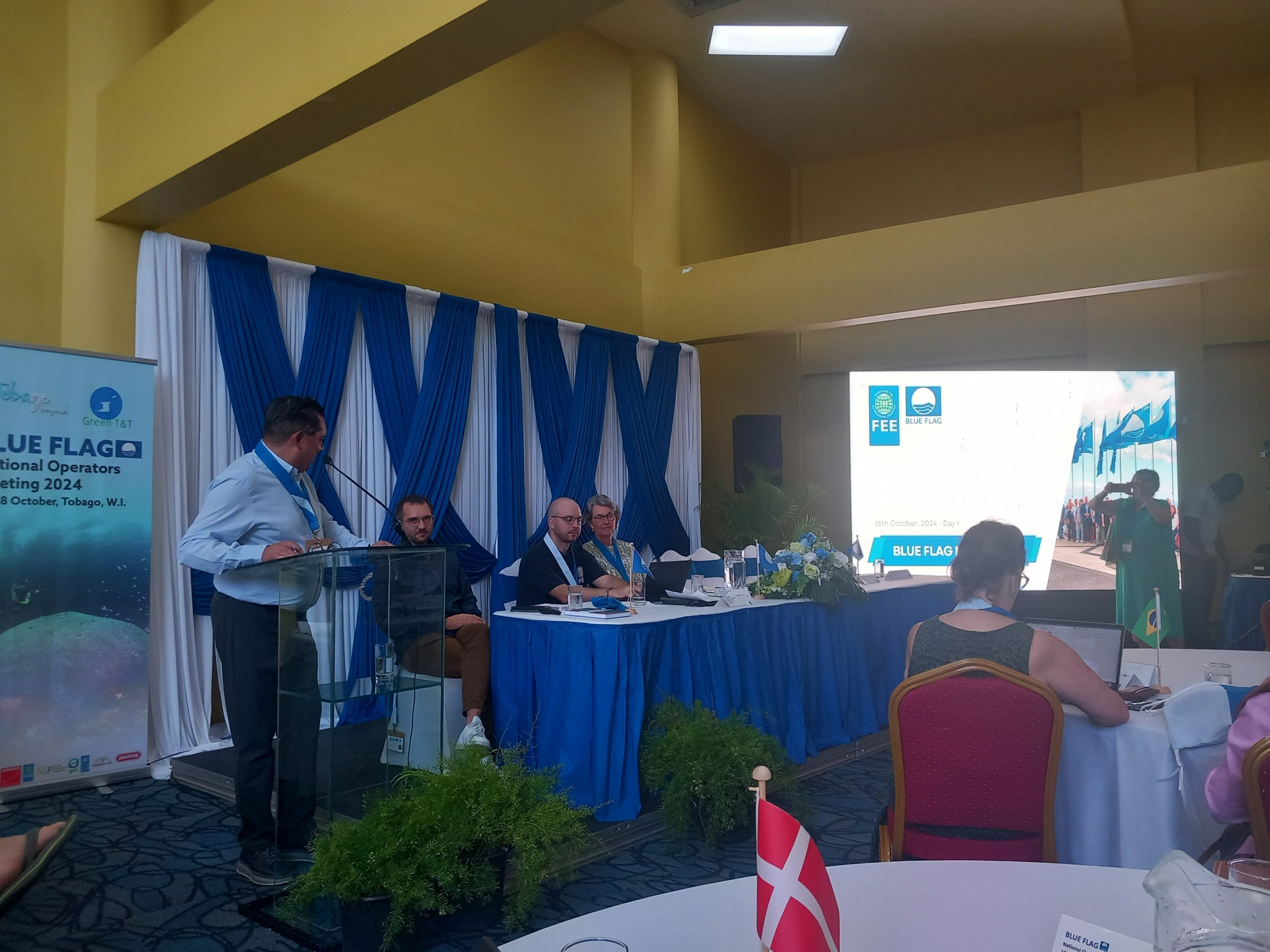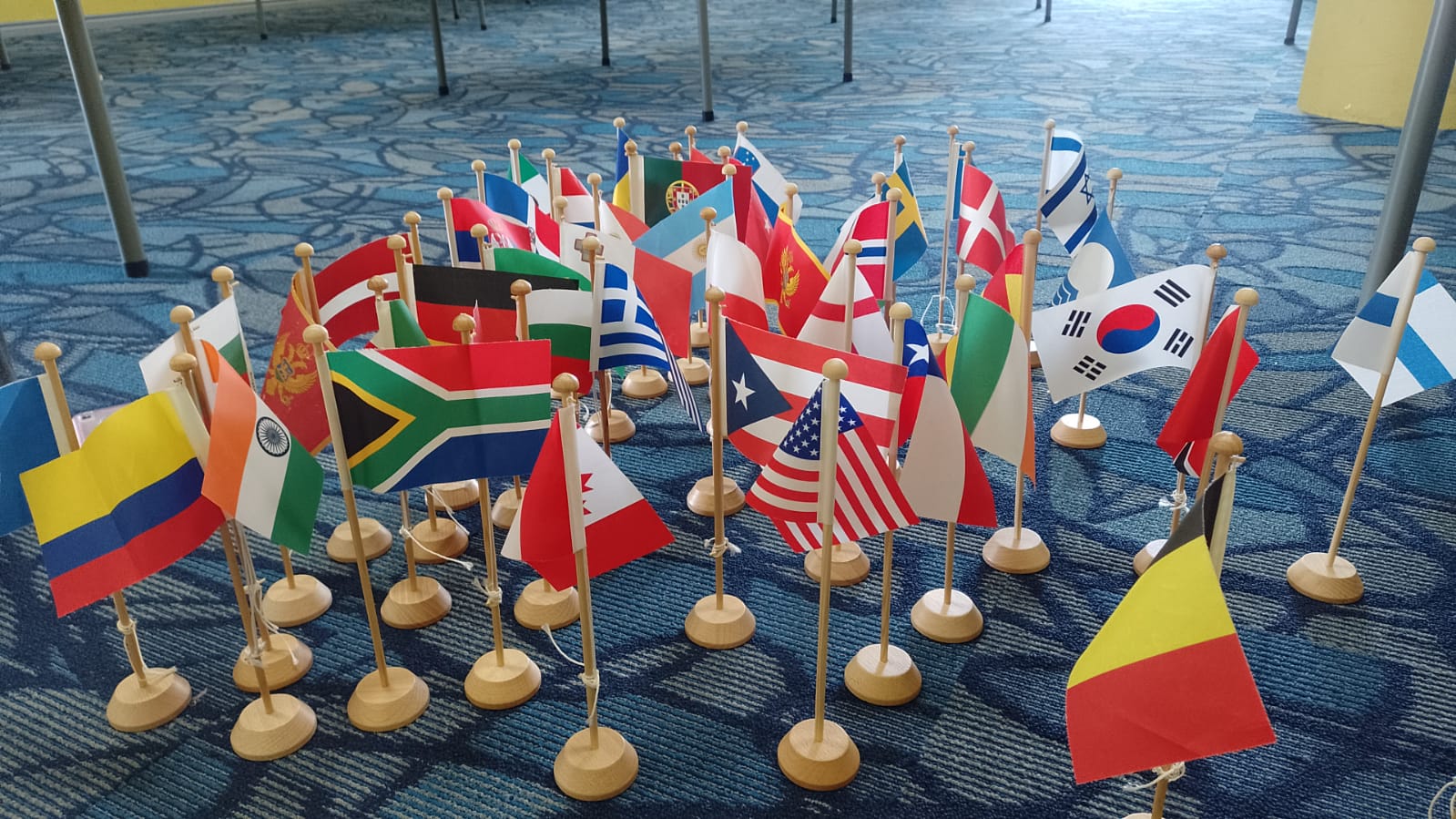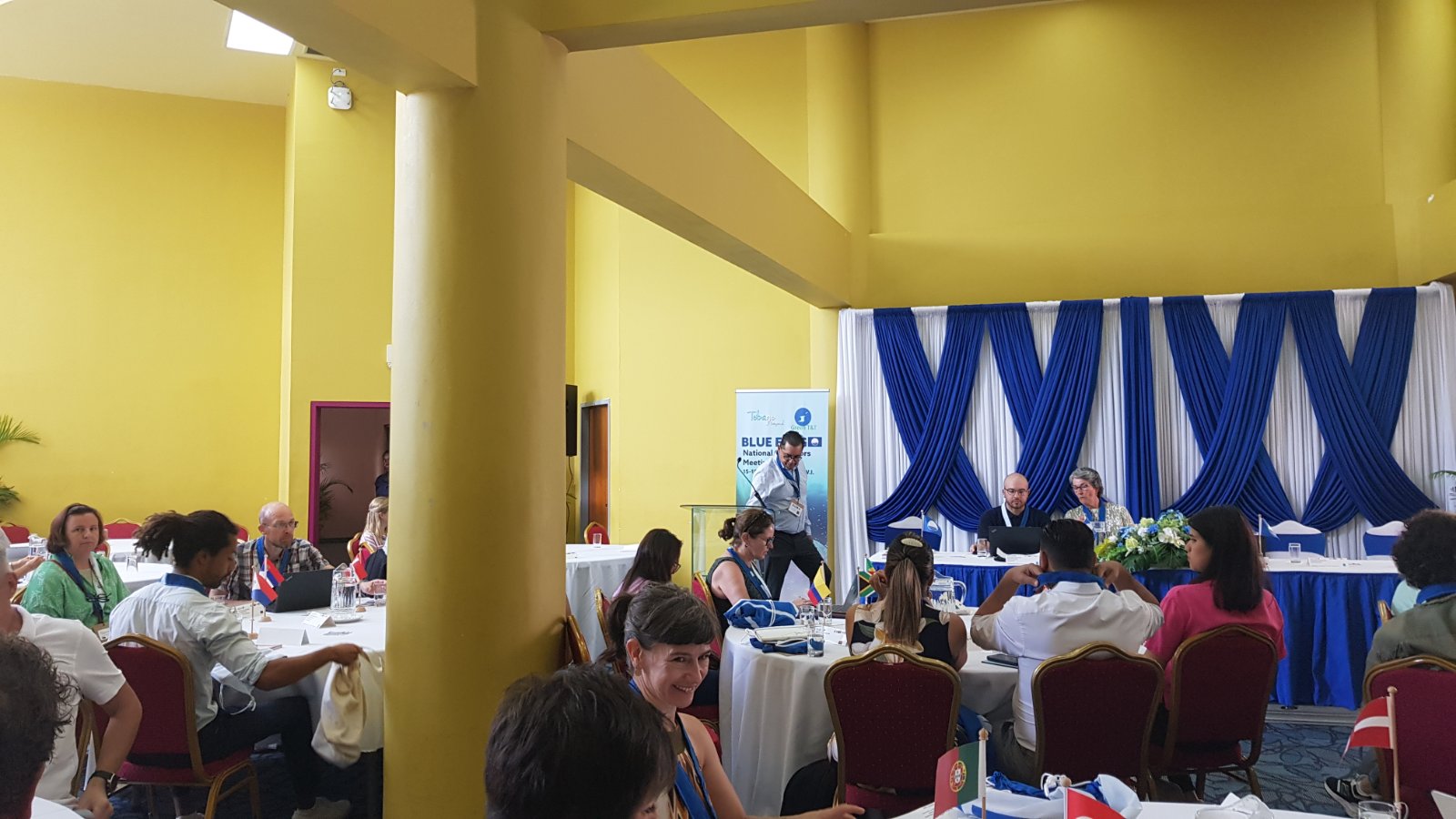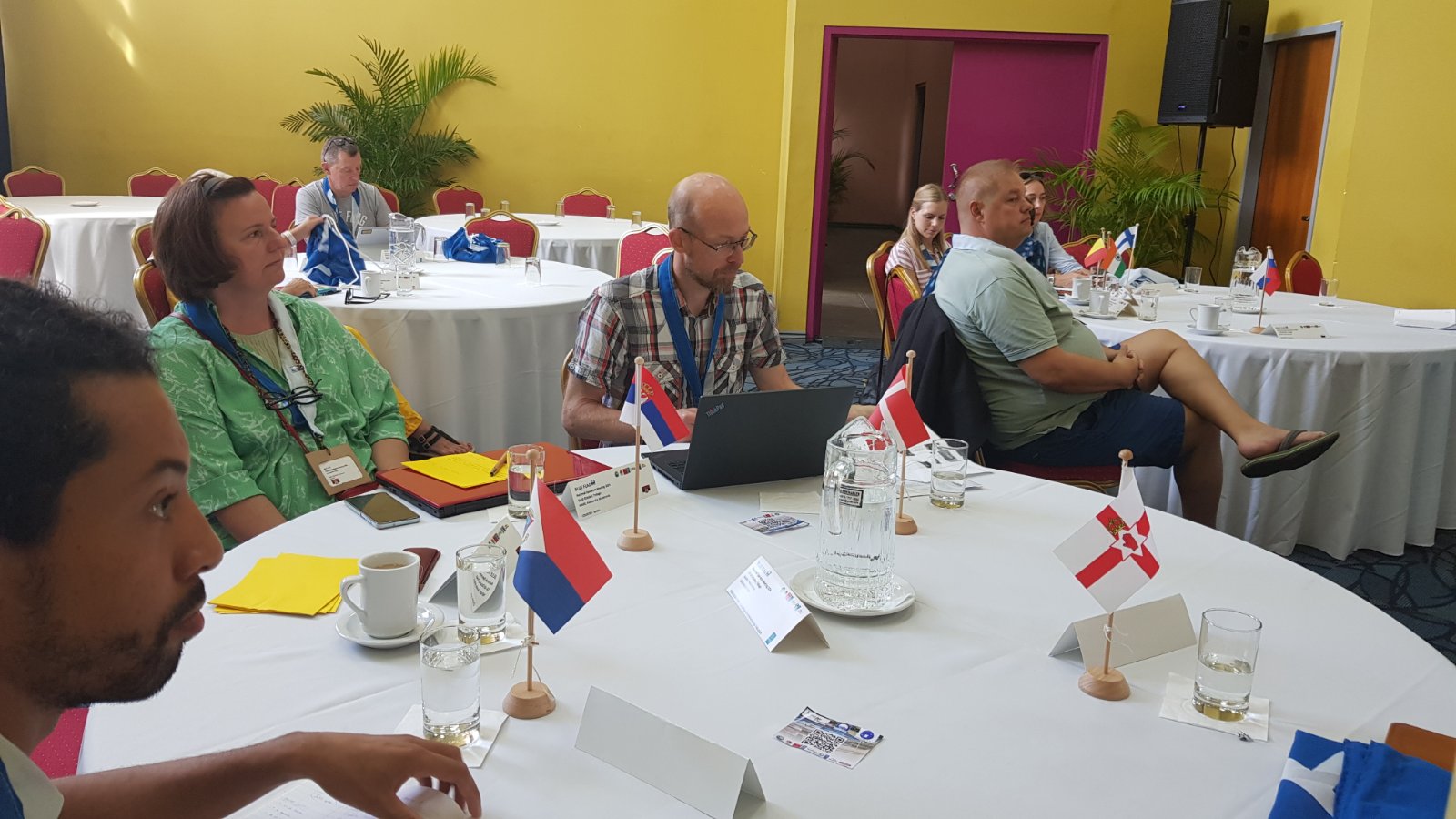The Blue Flag NOM was held in Scarborough, Tobago, from 15 to 18 October 2024. That was a great opportunity for BF operators around the world to meet and exchange the latest progress in implementing the BF program in their own countries. In total 45 participants, national operators of the program, from around 40 countries around the world, FEE Global representatives, and a hosting organization from Trinidad & Tobago number more than 60 participants, who had the opportunity to hear about updates from FEE, done by Lesley Jones, President of FEE; Past Year´s Highlights From Blue Flag International; the Blue Flag Action Plan 2024-2025 and among other, the big picture: Blue Flag upcoming challenges towards certification requirements: Green Claims, Ecolabels, and Substantiation. Discussion was open for further development on the detailed picture: ECGT Directive, Accreditation, and Process Review, what does it mean for the Blue Flag program? The discussion was also launched on draft new beach criteria and draft new sail training vessels criteria.
Communication and advocacy workshop in relation to the Blue Flag certification requirements was done, as well as a presentation of “Semaphore”, a historical partner to the BF program and another partner “Pick A Pier”.
Presentations were done by colleagues from Latvia: EU Beach SOS Project, Colombia: Alignment With National Public Beach Programme and India: Blue Flag as an enabling programme for Local Communities
The presentation was prepared by the Secondary Schools Tourism Club.
A stakeholder Knowledge Sharing Session was facilitated where the CSO-Government-Private Sector Policy Knowledge Fair presented how to amplify and improve global and national policy engagement regarding environmental sustainability and promote cooperative decision-making
CLIMATE CHANGE – Session one
BIODIVERSITY – Session two
POLLUTION- Session three
Blue Flag SIDS Strategic Meeting at the National Level was organized. The THA, Private Sector and Civil Society Organization (CSO) counterparts have reached a consensus on advancing the Blue Flag program in Tobago that aligns seamlessly with THA’s existing policies, contributes towards achieving Sustainable Development Goals (SDG), fortifies the blue economy and is in full accord with FEE’s GAIA 20:30 Strategy.
Desired Output: Preliminary Blue Flag implementation framework recommendations for future collaboration that synergize with THA’s policy direction and uphold solidarity with SDG targets, contributing to the region’s blue economy and embodying principles consistent with FEE’s GAIA 20:30 Strategy.
FEE Regional Development in the Caribbean/Americas Region, Panel Discussion, facilitated by FEE.
The FEE’t for Purpose process, initiated in October 2023, aims to enhance FEE’s effectiveness and align it with strategic goals. Six working groups were formed to address topics related to FEE membership and financial systems. In early 2024, multiple sessions focused on membership structure, programme quality standards, and financial systems. By mid-2024, further meetings refined these discussions, with agreed outcomes such as voting rights. Future focus areas include developing criteria for full members running one programme, managing programmes across countries, consortium membership, affiliate membership, standardizing membership agreements, and streamlining the membership application process. These efforts aim to ensure clarity and consistency in FEE’s membership structures and standards.
Additionally, and as part of this process, FEE is researching ways to expand its impact through its programmes in Caribbean countries without a resident NGO capable of running the programme. It would like to do so by leveraging the combined expertise and established networks of FEE. Building on the knowledge and recommendations of regional actors and partners, such as the Caribbean Tourism Organisation (CTO) and Caribbean Alliance for Sustainable Tourism (CAST), the Association of Caribbean States (ACS), the Caribbean Energy Chamber and the University of the West Indies (UWI) – it would ensure a future robust framework and necessary buy-in for successful implementation. Some countries of interest are Dominica, Grenada, Saint Lucia, Saint Vincent and the Grenadines, and Suriname.
Desired Outputs: Recommendations from the partners for a preliminary FEE Greater Caribbean implementation framework for future collaboration that synergizes with its Caribbean counterparts and aligns with FEE’s GAIA 20:30 Strategy.




